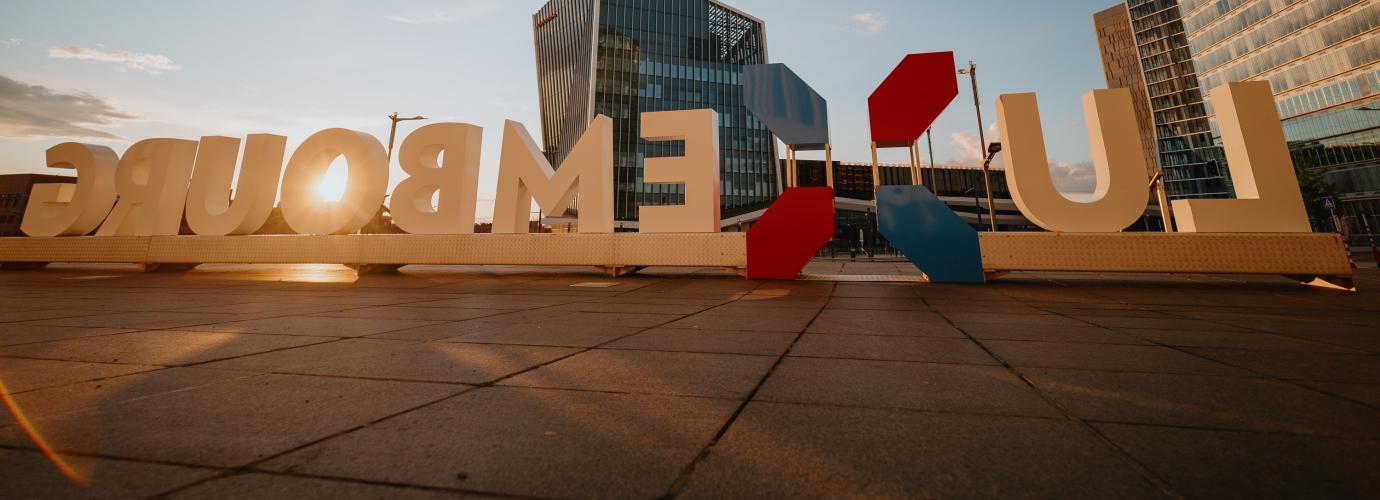Curriculum, subjects, number of hours
Areas of learning and development (domaines de développement et d’apprentissage)
The law on the organisation of elementary education (loi modifiée du 6 février 2009 portant organisation de l'enseignement fondamental) laid down six different areas of learning and development for cycles 2 to 4 of elementary education:
- Literacy in German, French and Luxembourgish and awareness of other languages (l’alphabétisation, les langues allemande, française et luxembourgeoise, ainsi que l’ouverture aux langues)
- Mathematics (les mathématiques)
- Discovery of sciences, initiation to human and social sciences and natural sciences (l’éveil aux sciences et les sciences humaines et naturelles)
- Body expressions, psycho-motor activities, sports and health (l’expression corporelle, la psychomotricité, les sports et la santé)
- Creative expression, discovery of aesthetics and culture (l’éveil à l’esthétique, à la création et à la culture, les arts et la musique)
- Life and society (vie et société).
Media literacy is integrated into all subjects.
Repartition of lessons
The distribution of lessons between the different subjects is determined by the grand-ducal regulation setting out the curriculum framework for the four cycles of elementary education (règlement grand-ducal du 11 août 2011 fixant le plan d’études pour les quatre cycles de l’enseignement fondamental).
Cycle 2
| Number of annual lessons | Average number of weekly lessons | |
|---|---|---|
| Literacy, German, French and awareness of other languages | 360 (306 + 54)* |
10 |
| Mathematics | 216 | 6 |
| Discovery of sciences | 108 | 3 |
| Luxembourgish | 36 | 1 |
| Living together and values | 72 | 2 |
| Creative expression, discovery of aesthetics and culture | 108 | 3 |
| Body expressions, psycho-motor activities, sport and health | 108 | 3 |
| Total | 1 008 lessons | 28 lessons |
* 54 lessons of French in the 2nd Semester of the second year of cycle 2.
Cycle 3
| Annual number of lessons | Average number of lessons/ week | |
|---|---|---|
| German, French and awareness of languages | 432 | 12 |
| Mathematics | 180 | 5 |
| Discovery of sciences | 72 | 2 |
| Luxembourgish | 36 | 1 |
| Living together and values | 72 | 2 |
| Creative expression, discovery of aesthetics and culture | 108 | 3 |
| Body expressions, psycho-motor activities, sport and health | 108 | 3 |
| Total | 1 008 lessons | 28 lessons |
Cycle 4
| Annual number of lessons | Average number of lessons/ week | |
|---|---|---|
| German, French and awareness of languages | 432 | 12 |
| Mathematics | 180 | 5 |
| Natural sciences | 36 | 1 |
| Human and social sciences | 72 | 2 |
| Luxembourgish | 36 | 1 |
| Living together and values | 72 | 2 |
| Creative expression, discovery of aesthetics and culture | 108 | 3 |
| Body expressions, psycho-motor activities, sport and health | 72 | 2 |
| Total | 1 008 lessons | 28 lessons |
Languages
In cycle 2, at the average age of 6, pupils learn to read and write in German. Pupils start to learn French at the beginning of the second year of cycle 2 (average age of 7 years). German is the language of instruction for most subjects in elementary education. According to the pupils’ needs, teachers may however provide additional explanation in Luxembourgish and French.
Teaching methods and materials
Didactical approach and choice of teaching methods
One of the main objectives of the organisation of elementary schools is to respond to the growing heterogeneity of the schools’ population with regard to their language and family background, their personal pace of learning and their individual development. The Ministry therefore gives the pedagogical teams (équipes pédagogiques) the necessary autonomy to organise their teaching according to the pupils’ needs Teachers should therefore have a deep knowledge of the objectives of each learning cycle (competences and basic skills levels) and they should master a broad range of teaching methods.
This pupil-centred approach should be strengthened by the following means:
- Various forms of team teaching: cooperation of pedagogical teams can take various forms, ranging from individual teaching to advanced team teaching approaches
- Differentiated instruction: teachers are encouraged to differentiate instruction and to provide individual support to pupils in difficulties. 54 hours of their mission are foreseen for specific pedagogical support, which can be provided during or after class
- Individual support scheme (plan individuel de prise en charge): for pupils with special needs, an individual support plan can be established by the commission for school integration (commission d’inclusion scolaire).
Guidelines on language teaching
Guidelines on language teaching are provided by the document Bildungsstandards Sprachen, which has established a framework for a competence-based approach in language teaching.
Teaching material
According to a ministerial letter on the choice of teaching material (Circulaire ministérielle du 22 juin 2011 relative au choix du matériel didactique à utiliser par les écoles), a catalogue of recommended school manuals is established by the ministry of Education. This catalogue lists all manuals which are edited by the ministry, recommended by the national school commission (commission scolaire nationale) and the grand-ducal teaching commission (commission grand-ducale d’instruction).
Each pedagogical team has to take a joint decision for the material to be used in the classes of their cycle. Pedagogical teams may either work with teaching material which is recommended by the ministry of Education or choose other teaching material which corresponds to the curriculum framework (plan d’études) and which has been approved by the school committee (comité d’école).
The school committee ensures that the material chosen for the different cycles belongs to the same series. If no agreement is reached, the inspector decides which material will be used.
Teaching materials are available free of charge.

